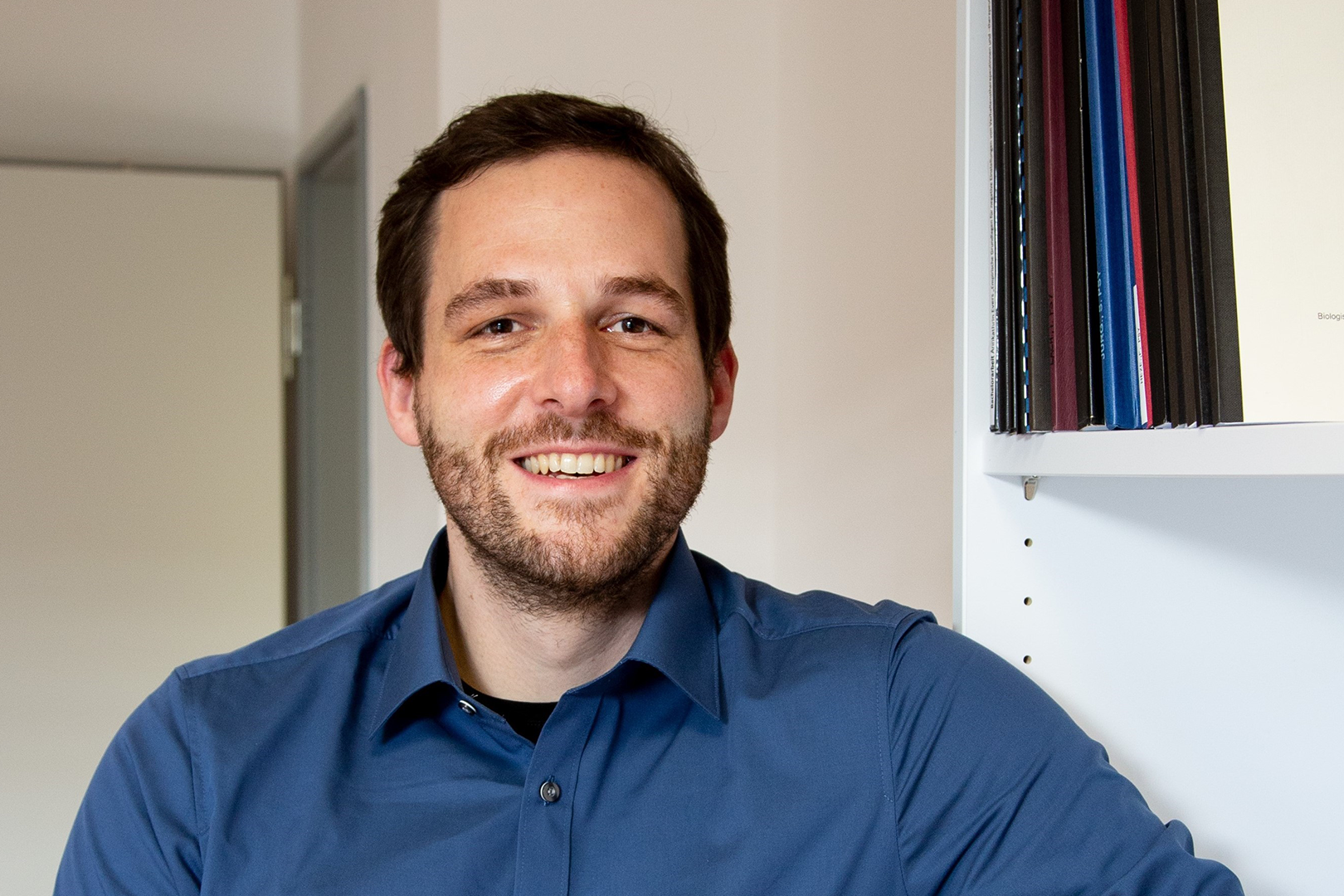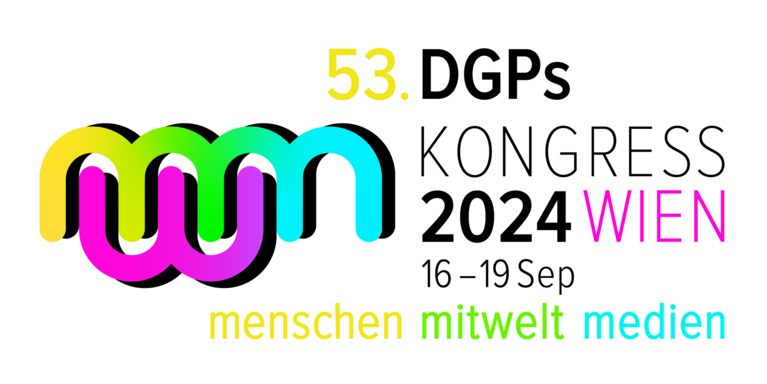Invited Speakers
The list of speakers is continuously being updated and expanded.
Vera Araújo Soares

Medical Faculty Mannheim, Heidelberg University
Keynote Lecture:
Our Health and the Health of our Planet: on the Paramount Need for Psychological Science for the Future of Humanity
The health of our planet will have an ever-present role on the health of our populations. Climate change, ever more frequent heat waves and pollution levels are increasing morbidity and mortality and bringing us eco-syndemics. In order to progress in reaching the United Nations Sustainable Development Goal 3 (Good health and wellbeing), we will need to engage in deploying interventions/measures that produce co-benefits for the health of the population and that of our support system: our planet. In this talk the focus will be on the link between our health and the health of our planet. An analysis on how can evidence based predictors of health behaviour change be generalisable to co-beneficial behaviours will be made based on a study that interviewed behavioural experts. Results from a systematic review that aims at understanding what interventions have been developed and tested to target co-beneficial behaviours will be presented and critically appraised. Arguments on the need for a stepped approach to intervention development, based on evidence, with user engagement and co-design principles, will be made. Finally, the role of Health Care Professionals will be discussed. Identified research gaps within the scientific realm of psychology will be detailed. At the end of this presentation I will contend that increasing the dissemination of psychological knowledge will be crucial to assure timely impact and support humanity in reaching SDGs, more precisely SDG3 (clearly linked with many others).
About the Speaker:
Vera Araújo Soares (https://www.umm.uni-heidelberg.de/medical-faculty-mannheim/prevention-of-cardiovascular-and-metabolic-diseases/team ) is Professor of Prevention and head of the Division of Prevention at the Center for Preventive Medicine and Digital Health (CPD) based at the Medical Faculty Mannheim, Heidelberg University.
Her research targets the development and evaluation of evidence-based interventions with user and stakeholder engagement for the promotion of health behaviours, prevention and self-management of chronic conditions. She is passionate about using behavioural and social science to support population health and prevention. This work is based on an understanding of contextual factors shaping health interacting in a complex system.
Vera has worked in Portugal, Scotland, England, The Netherlands and as of 2023 in Germany. She was the 14th President of the European Health Psychology Society (https://ehps.net/) and is the Regional Vice President of the Psychology Coalition at the United Nations (https://psychologycoalitionun.org/). She has published in leading international journals including the BMJ, Diabetologia, Pain, Health Psychology and Health Psychology Review (https://scholar.google.de/citations?user=bmSwuBkAAAAJ&hl=en ). Vera’s ultimate goal is to translate theory and empirical evidence into practice and by doing so, exerting impact.
Kelly Babchishin

Carleton University, Canada
Keynote Lecture:
What do we know about Child Pornography Offending? An Overview of Recent Research
Risk assessment is a core element of effective correctional practice. For individuals with contact sexual offenses, many risk assessment tools are available. For those with Child Sexual Exploitation Material offending (CSEM; legally referred to in Canada and the United States as child pornography), much fewer tools are available or, more precisely, much fewer validated risk tools are available. Relatedly, there continued to be an influx of research on CSEM offending with new findings reported almost every month. This presentation will review recent findings on CSEM offending, with a focus on the similarities and differences of CSEM from typical, contact sex offenders. Findings relevant for the assessment and treatment of individuals with CSEM offences will be described.
About the Speaker:
Kelly M. Babchishin is a professor of forensic psychology within the Department of Psychology and an Associate Editor of "Sexual Abuse". After completing her Ph.D. (experimental psychology, Carleton University), Kelly completed a Banting postdoctoral fellowship at the Institute of Mental Health Research (Ottawa) and the Karolinska Institute Department of Medical Epidemiology and Biostatistics (Stockholm). Prior to starting at Carleton, Kelly was a research advisor at the Public Safety Canada and the Parole Board of Canada where she conducted research to facilitate evidence-based policies for justice-involved individuals within Canada. Dr. Babchishin's research examines factors involved in the onset and maintenance of sexual offending with particular focus on online sexual offending and incest offending. She is the director of the Sexually Harmful Behaviours Research Lab and co-director of the Forensic Psychology Research Centre at Carleton University.
Emorie Beck

University of California, Davis
Keynote Lecture:
The Person in Psychology: The Importance of Idiographics and Nomothetics
Psychology is fundamentally a study of persons, including their thoughts, feelings, and behaviors, as well as the contexts and social structures in which they are embedded. Yet, the bulk of psychological research focuses on aggregated patterns across people, which obfuscates the complex dynamics through which an individual life unfolds. In this talk, I highlight a re-emerging psychology based in dynamic systems theory that emphasizes the individual and uniqueness (i.e. idiographics) as well as the group and commonality (I .e. nomothetics). First, I discuss ongoing work investigating a person as a dynamic system of shared and unique social, cognitive, psychological, behavioral, and contextual factors that unfold over time. Second, I link short-term dynamics with long-term change, demonstrating how to bridge idiographic and nomothetic approaches. Third, I discuss the applied relevance of idiographic approaches for behavioral targeting and intervention tailoring. I conclude by summarizing this work in the broader context of psychology.
About the Speaker:
Dr. Emorie Beck is an Assistant Professor of Personality and Individual Differences at the University of California, Davis. Dr. Beck's research focuses on what personality is, which has consequences for how we measure personality, what those measures predict both short- and long-term, and how personality is thought to change. She studies how to understand the personality of an individual relative to only themself, relative to some others, and relative to all others. To do so, she uses a mix of methods, including experience sampling methods, passive sensing, survey data, panel data, cognitive tests, and more measured across time intervals from moments to years along with an array of statistical approaches, including time series analysis and forecasting, hierarchical modeling, machine learning, network psychometrics, structural equation modeling, and more.
Stefanie Becker

School of Psychology, University of Queensland, Australia
Keynote Lecture:
A Relational Account of Attention and Eye Movements
Attention allows us to select information about relevant objects from cluttered visual scenes, and helps us in many everyday tasks when we are searching for our keys or phone. Current models of visual attention typically assume that we find objects by tuning attention to a specific feature value of sought-after objects (e.g., a colour, shape or orientation). However, my own research has revealed that attention is often tuned to the relative features of an object (e.g., redder / larger / darker; or the reddest / largest / darkest item). Thus, selection depends on the context: Both the feature of the search target and the context determine how we tune attention to a target. The corresponding Relational Account (Becker, 2010) can explain a multitude of effects visual search (attention and eye movements), and affects the contents in Visual Short-Term Memory (VSTM) and awareness. Collectively, our results suggest the need to modify existing accounts of attention and VSTM to include context-sensitive processes and mechanisms.
About the Speaker:
Prof Stefanie Becker was awarded her PhD in Experimental Psychology in 2007, from the University in Bielefeld, Germany, and has since worked at the University of Queensland in Brisbane, Australia. Her work is focussed on identifying the factors that drive visual selection and eye movements, using traditional behavioural paradigms, eye tracking, EEG and fMRI. Stefanie has so far published 102 papers, some of which appeared in high-ranking outlets (e.g., TICS, IEEE, Psych Science, JEP-General). For her work, Stefanie has been awarded a number of prestigious prizes, among them the APS and UQ Early Career Awards, the International EyeTrack Award and the National Dissertation Prize in Germany.
Gudela Grote

ETH Zürich, Switzerland
Keynote Lecture:
Uncertainty at Work
Uncertainty is a fundamental human experience and largely considered to be an aversive state people try to avoid. In the talk, a model of uncertainty regulation will be introduced which includes both reduction and creation of uncertainty as potentially desirable options. First empirical work on the development of the concept of uncertainty mindset, that is the degree to which individiuals perceive uncertainty as malleable or fixed and as a threat or an opportunity, will be presented. Different work contexts within which uncertainty regulation is particularly relevant, will be highlighted and pertinent research discussed, such as coordination in high risk teams and development and use of emerging technologies.
About the Speaker:
Gudela Grote is Professor of Work and Organizational Psychology at ETH Zürich. She studied psychology at the University of Marburg and at the Technical University in Berlin and received her doctorate at the Georgia Institute of Technology, Atlanta, USA. A special interest in her research are the increasing flexibility and virtuality of work and their consequences for the individual and organizational management of uncertainty. Application domains for her research have been among others teamwork and standardization in high-risk systems, effects of new technologies on work processes, and the management of the employment relationship. Her work has appeared in the major journals of her field and she currently serves on the editorial boards of the Journal of Applied Psychology and Academy of Management Review. In her various former and present roles, such as President of the European Association of Work and Organizational Psychology, member of the Swiss National Research Council, and member of the scientific advisory board of the German Federal Institute for Occupational Safety and Health, Gudela Grote strives to promote evidence-based practice and policy-making.
Stefan Kiebel

TU Dresden, Germany
Keynote Lecture:
Bayesian Insights Into Rapid Decision-Making: The Computational Principle of Context Inference
It is remarkable that humans can make complex routine decisions with potentially far-reaching consequences, in just a couple of hundred milliseconds. From machine learning, we know how difficult it is to achieve the computation of flexible behaviour in such short time-ranges. How do our brains generate these fast and yet flexible decisions? One way of addressing this question is to build a computational model of the underlying processes. In our approach, we make the key assumption that context inference is required to compute context-specific behaviour. We implemented this assumption within the active inference framework and derived a Bayesian contextual control model. Employing this model, we successfully replicated canonical experimental results in habit learning, goal-directed control, and cognitive control. Furthermore, this model explains seemingly counter-intuitive findings in motor control learning. Collectively, these results point at a fundamental computational principle, context inference, that explains how humans achieve both speed and flexibility in everyday decision making.
About the Speaker:
Stefan Kiebel is a professor of Cognitive Computational Neuroscience at the Faculty of Psychology at TU Dresden, Germany. He was trained as a computer scientist and is a co-developer of the widely used Statistical Parametric Mapping SPM neuroimaging software package. Over time, his interests shifted towards cognitive neuroscience, sparking collaborations between the fields of cognitive neuroscience, psychology, computer science, and machine learning. At present, Kiebel’s research focuses on Bayesian modelling, predictive coding, and active inference. His main curiosity lies in understanding how our brain employs hierarchies of time scales for cognitive functions, such as decision making under time constraints.
Amy Orben

MRC Cognition and Brain Sciences Unit, University of Cambridge, UK
Keynote Lecture:
Screen Savers: Protecting Adolescent Mental Health in a Digital World
In our rapidly evolving digital world, there is increasing concern
about the impact of digital technologies such as social media on the
mental health of young people. Policymakers and the public are nervous.
Psychologists are facing mounting pressures to deliver evidence that can
inform policies and practices to safeguard both young people and society
at large. However, research progress is slow while technological change
is accelerating. Dr Orben will reflect on this, both as a question of
psychological science and metascience, during her keynote address.
Digital companies have designed innovative and highly popular
environments that differ in important ways from the offline spaces
humans have traditionally inhabited and interacted with. By revisiting
the foundations of our psychological discipline – such as development
and cognition – and considering how these digital changes to our
environment impact pre-existing theories and findings, we can gain
deeper insights into how digitalisation might impact important outcomes
such as mental health. Dr Orben’s keynote will discuss this from
multiple methodological perspectives. On the one hand, developmental
vulnerabilities that predispose young people to mental health conditions
can be exacerbated by digital environments. On the other, digital
designs can interact with cognitive and learning process, which can be
formalised through computational approaches such as reinforcement
learning or Bayesian modelling.
However, we also need to face deeper questions about what it means to
do science about new technologies and the challenge of keeping pace with
technological advancements. Dr Orben will therefore also discuss the
concept of ‘fast science’: an approach discussed in philosophy of
science where during crises scientists might lower their standards of
evidence to come to conclusions quicker. Might psychologists want to
take this approach in the face of technological change and looming
concerns? Dr Orben will conclude her keynote discussing this and other
strategies for shaping 21st-century psychology to remain relevant in the
era of digitalization.
About the Speaker:
Dr Amy Orben is a Group Leader at the MRC Cognition and Brain Sciences Unit and Fellow of St. John's College at the University of Cambridge. She completed her DPhil at the University of Oxford and MA at the University of Cambridge and now directs an internationally renowned research programme investigating the links between mental health and digital technology use in adolescence. Dr Orben's work is supported by key national and international funders, charities and foundations, and she advises governments, health officials and public servants around the world, holding appointments on the UK government's Department for Science, Innovation and Technology College of Experts and the British Academy Public Policy Committee. She has received a range of prestigious awards including the Medical Research Council Early Career Impact Prize (2022), British Psychological Society Award for Outstanding Contributions to Doctoral Research (2019), Society for the Improvement of Psychological Science Mission Award (2020), British Neuroscience Association Researcher Credibility Prize (2021) and UK Reproducibility Network Dorothy Bishop Early Career Researcher Prize (2022).
Sabine Pahl

Environmental Psychology Group, Faculty of Psychology, University of Vienna
Keynote Lecture:
The 4 Ps: Plastic Pollution from Psychology to Policy
Plastic pollution in the natural environment is entirely due to humans. Throughout the whole life cycle of plastic, from production via consumption to disposal, it is human decisions and behaviours that ultimately lead to plastic ending up in natural environments. Every sector, every individual plays a role in the fate of plastic waste. For example, designers and producers make decisions about materials, appearance and functionality; consumers make purchasing decisions and dispose of items after use; policy makers decide on regulation and legal frameworks. These processes can be documented and explained using theories and methods from the social and behavioural sciences. More importantly, these insights can guide social change processes systematically and help develop and evaluate effective communication and behaviour change interventions. This presentation will summarise key elements of research and policy work on plastic pollution over the last decade. The focus will be on risk perception, policy support and behaviour change, exploring different psychological pathways and processes. The talk will draw on interdisciplinary and international work to highlight challenges to such integrative and applied research. It will include research on macro- and microplastics and a range of stakeholders, including farmers, plastics industry and young people. This will be complemented by a brief discussion of the research-policy interface in the context of plastic pollution, drawing on work with the EU Chief Scientific Advisors and UNEP in the context of the UN plastics treaty currently under negotiation.
About the Speaker:
Sabine Pahl is Professor of Urban and Environmental Psychology at the University of Vienna, Austria, and leads the Environmental Psychology group (https://env-psy.univie.ac.at/) in the Faculty of Psychology since 2020 after a largely UK-based career. She investigates risk perceptions and drivers of policy support and behaviour change, particularly in the areas of plastic and chemical pollution, nature conservation and energy efficiency. She is also interested in the psychological benefits of nature, including its use in healthcare. Sabine has a track record in UK- and EU-funded research projects, peer-review publications as well as science advice processes at national, European and international levels, always contributing psychological and behavioural science perspectives. She is current president of the IAAP’s environmental psychology division and co-leads the University of Vienna’s Environment and Climate Hub (https://ech.univie.ac.at/) since 2022. She was awarded the Newman-Proshansky Career Achievement Award by APA’s Division 34 in 2022 and is a member of the Scientists’ Coalition for an Effective Plastics Treaty (https://ikhapp.org/scientist-about-us/).
André Pittig

Georg-Elias-Müller Institute for Psychology, Georg-August University of Göttingen, Germany
Keynote Lecture:
Translational Psychotherapy in Fear, Anxiety, and Avoidance
Based on basic and clinical research, translational psychotherapy aims to improve understanding of the fundamental processes underlying the development and treatment of mental disorders with the ultimate goal to improve psychological treatments. Following this agenda, our research focuses on cognitive and behavioral processes of fear, anxiety, and defensive behaviors, which represent the core characteristics of stress-related and anxiety disorders. Key research questions address how maladaptive defensive behaviors can be reduced despite high levels of fear (fear-opposite approach) and the role of threat expectancies as a target for psychological treatment. In this talk, I will present a series of studies combining laboratory-based experiments, smartphone-based everyday assessments, and clinical treatment studies addressing these questions. Finally, I will provide an outlook how our research agenda may facilitate individualized, process-based treatment.
About the Speaker:
Andre Pittig is a professor of Translational Psychotherapy at the University of Göttingen. He is a licensed psychotherapist and supervisor. Following the scientist-practitioner model, his research follows the motto “From lab to treatment and everyday life” and combines laboratory-based emotional learning and decision-making, smartphone-based everyday assessments, as well as outcome- and process-based treatment trials. His translational research agenda aims to elucidate the processes underlying the development and treatment of anxiety and stress-related disorders with the ultimate goal to improve existing and develop novel treatments.
Lisa Son
Barnard College, USA
Keynote Lecture:
Metacognition: Learning to learn or learning to unlearn?
For decades now, the literature has supplied us with opportunities to conclude that effective monitoring and control -- the key components of metacognition -- will lead to boosts in performance. While I agree with this statement, I have also become certain that this emphasized association between metacognition and performance has pushed learners (and educators) to neglect the core of metacognition: That metacognition evolved to extend not certainty, but uncertainty. By presenting several experiments, I will attempt to show that by shifting our perspective from performance to the ongoing learning processes, we will benefit both persistence, and, subsequently, long-term boosts. An intertwining theme will be impostorism, where people's unwillingness to show their uncertainties may be the primary barrier to learning at all.
About the Speaker:
Dr. Lisa Son, Professor of Psychology at Barnard College, Columbia University, specializes in human learning and metacognition. Receiving a BA from the University of Pennsylvania and a Ph.D. from Columbia University, her work has been published in prestigious journals including Psychological Science, Cognitive Science, and Educational Psychology Review. She has received funding from the U.S. Department of Education and the American Psychological Society for her work with elementary school-aged children, and was, twice, named a Fulbright Scholar to South Korea. Her recent work, including those described in her books in Korean on "The Science of Metacognition" (2019) and "Impostor" (2022), have begun to raise cross-cultural awareness on the illusions that exist during learning, and the biases that threaten the well-being of all individuals, including those who have achieved success.
Katherine Tamminen

University of Toronto, Canada
Keynote Lecture:
Social Dynamics of Emotions in Sport - Current Developments and Future Innovations
Competitive athletes experience a range of emotions related to their sport experiences, which occur within rich social contexts in the sport environment. Over the past decade in the field of sport psychology, researchers have increasingly emphasized the interpersonal and social processes that influence emotions, emotion regulation, stress, and coping among athletes and members of their social environments. In this talk, I will present research from my lab examining the emotional experiences within teams and groups in sport, processes of interpersonal emotion regulation between athletes, teammates, and coaches, as well as coping and emotion socialization between parents and youth sport athletes. The results of this research show how athletes' emotions and emotion regulation are influenced by others, and point toward the importance of these interpersonal emotional experiences for athletes' performance success, well-being and enjoyment, teammate relationships, and psychosocial development. Current trends and advances will be discussed, as well as future innovations in the study of emotions in sport.
About the Speaker:
Dr. Katherine Tamminen, PhD, is an Associate Professor and the Associate Dean, Graduate Education in the Faculty of Kinesiology & Physical Education at the University of Toronto. Dr. Tamminen's research program in sport psychology uses quantitative and qualitative methodological approaches and focuses on athlete stress, coping, and emotion regulation; athlete mental health; and youth athletes' experiences in sport. She is the co-Editor in Chief of the journal Psychology of Sport and Exercise and she serves on the editorial boards of multiple other journals in the field of sport and exercise psychology. She has served as the President of the Canadian Society for Psychomotor Learning and Sport Psychology (SCAPPS), and she is also a Member at Large with the International Society of Qualitative Research in Sport and Exercise. She has published over 100 research articles and book chapters in the field of sport psychology, and her research has been consistently supported by national funding agencies including the Social Sciences and Humanities Research Council of Canada, a John R. Evans Leadership Award from the Canadian Foundation for Innovation and the Ontario Research Foundation, and she was awarded an Early Researcher Award from the Province of Ontario Ministry of Research and Innovation. Dr. Tamminen is also a Registered Psychotherapist and a Certified Mental Performance Consultant providing mental health and clinical psychotherapy services for athletes, coaches, and individuals in various high-performance environments.
Thomas Teo

York University, Canada
Keynote Lecture:
Racism in the History of Psychology and its Legacy
Racism has been well documented in the historiography of psychology. Only recently, the historical legacy of racism in psychology has been acknowledged in the discipline. In 2021, the American Psychological Association released an apology that recognized the role of psychology in promoting, perpetuating, and failing to challenge racism and psychology’s participation in maintaining racial hierarchies, while identifying “white epistemologies” as sources of problematization. Using examples from the past and present, the presentation identifies explicit and implicit racist models and theorizing in the project of psychology. It is shown that equity, diversity, and inclusion (EDI) never were central in psychology’s practices. The consequences of these omissions in epistemologies of neglect and ignorance are discussed. A discipline based on EDI as an ontological, epistemological, and ethical project are outlined. However, it is argued that calls for EDI are insufficient when they do not address real-existing academic power differentials, including in international research, and that a true global psychology beyond ethnocentrism needs to reflect on how dominant approaches may be embedded in ideas of epistemic “supremacy.” Difficulties in discussing topics of academic privilege are outlined, while onto-epistemic changes that do not disadvantage or ignore groups of people, and research practices that move beyond problematization and exclusion are presented. A history of the present as a possible avenue against racism in psychology is suggested.
About the Speaker:
Thomas Teo is a professor of psychology in the Historical, Theoretical, and Critical Studies of Psychology Program at York University, Toronto, Canada. His research has been meta-psychological to provide a more reflexive understanding of the foundations, trajectories, and possibilities of human subjectivity within the psychological humanities. He is co-editor of the Review of General Psychology (SAGE), editor of the Palgrave Studies in the Theory and History of Psychology, and co-editor of the Palgrave Studies in Indigenous Psychology. He is Fellow of the Canadian Psychological Association and the American Psychological Association and has a research record with more than 300 academic publications, refereed and invited presentations.
Agnieszka Wykowska

Italian Institute of Technology, Italy
Keynote Lecture:
Using Robots to Understand Human Cognition
As robots are believed to soon populate human environments, they have received enthusiastic support in the scientific community. Most research aims at designing robots for assisting humans in daily lives, healthcare, or elderly care. However, there is also a less explored way of using robots - robots as tools to understand human cognition. In my lab, we take this approach, examining human cognitive mechanisms in social interaction. In this talk, I will present the work from my lab where we have examined how attentional orienting, sensorimotor processes, sense of agency and cognitive control unfold in interaction, or joint action, with others, i.e., natural and artificial partners. Our results showed, both at the behavioural and neural level, that interaction modulates attention, sensorimotor processes, sense of joint agency as well as adaptation to cognitive conflict. I will discuss these results in a broader context of using robots at the service of psychological research.
About the Speaker:
Professor Agnieszka Wykowska is the head of the unit "Social Cognition in Human-Robot Interaction" at the Italian Institute of Technology (IIT), in Genoa, Italy. She is also the Coordinator of the Center for Human Technologies, at the IIT. Her background is cognitive neuroscience (2006), Ludwig Maximilian University Munich (LMU) and philosophy (2001), Jagiellonian University in Krakow. She obtained a PhD in psychology (2008) from the LMU. In 2016 she was awarded the ERC Starting grant "InStance: Intentional Stance for Social Attunement". She is Editor-in-Chief of International Journal of Social Robotics. Since July 2022 she serves in the role of President of the European Society for Cognitive and Affective Neuroscience (ESCAN). In her research, she combines cognitive neuroscience methods with human-robot interaction to understand the human brain mechanisms in interaction with other humans and with robots.
